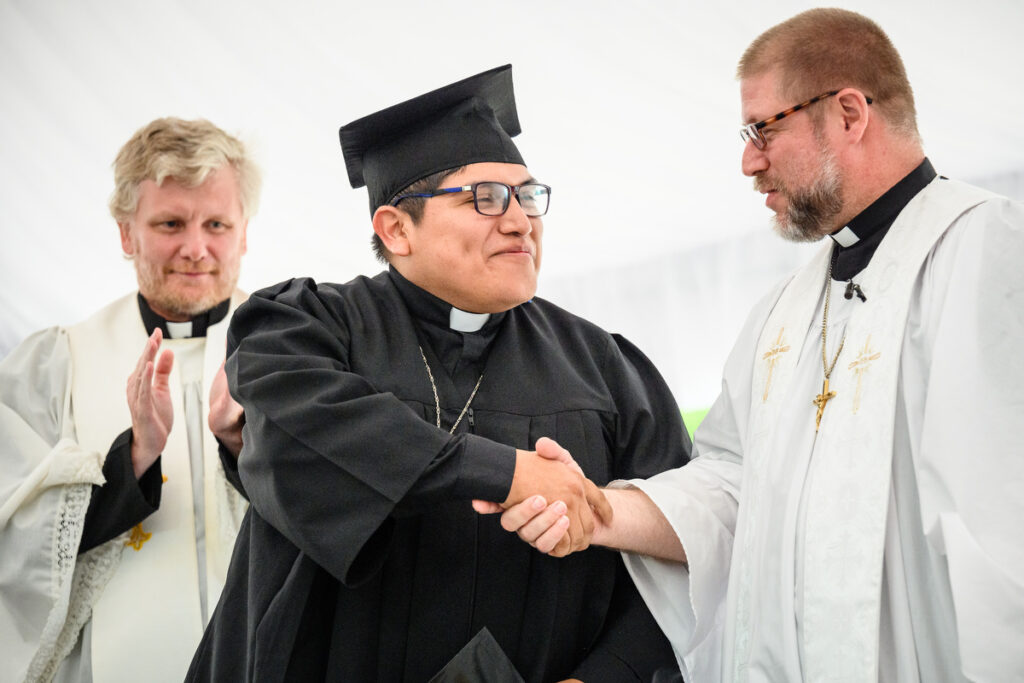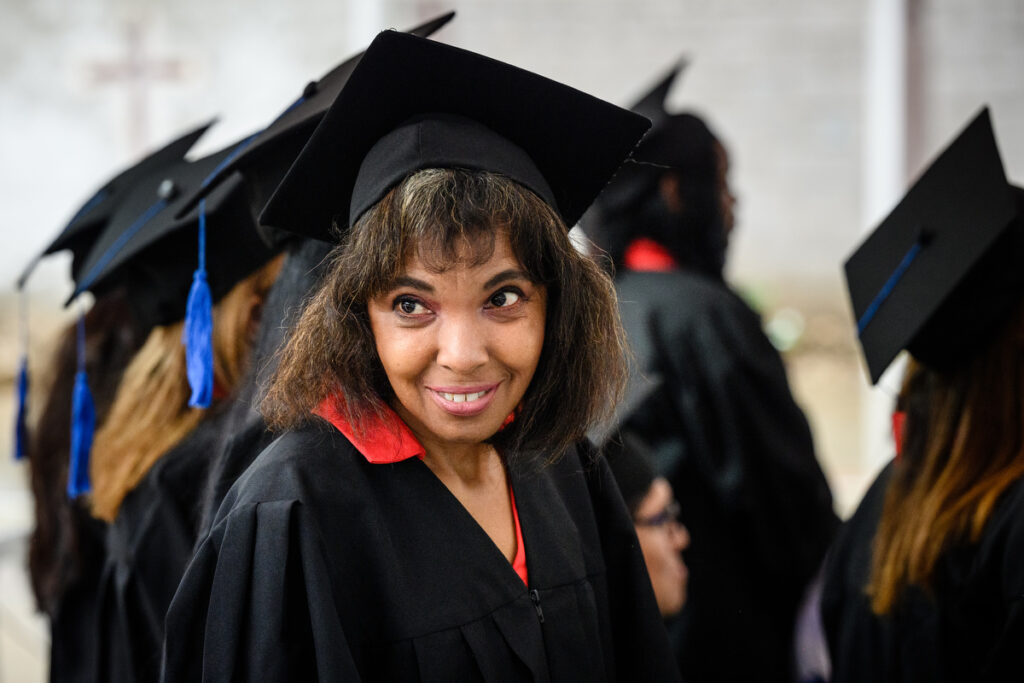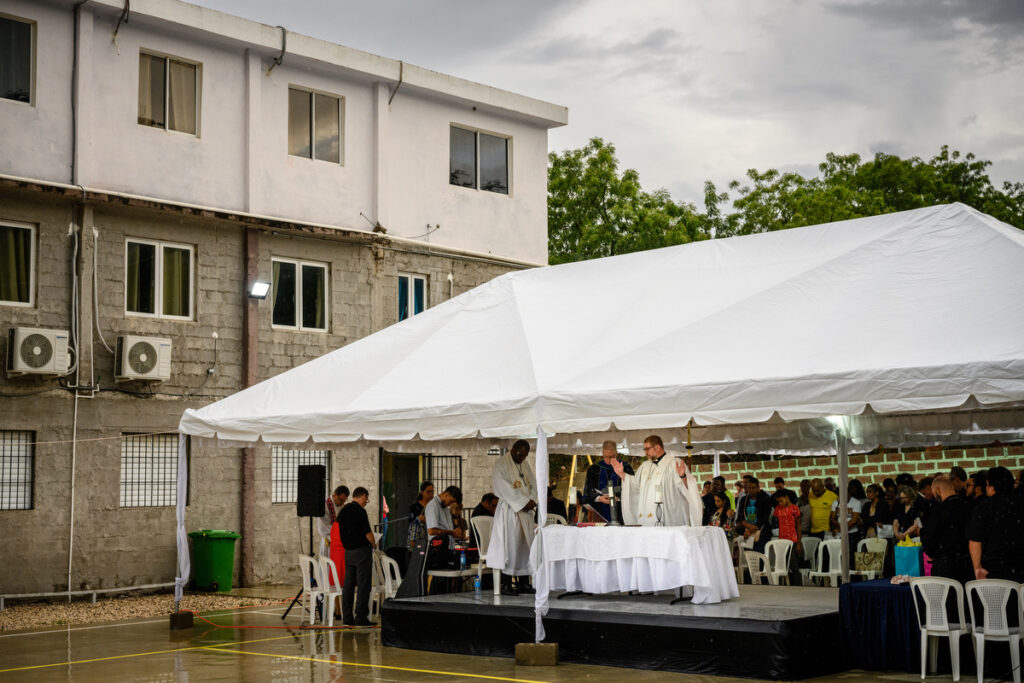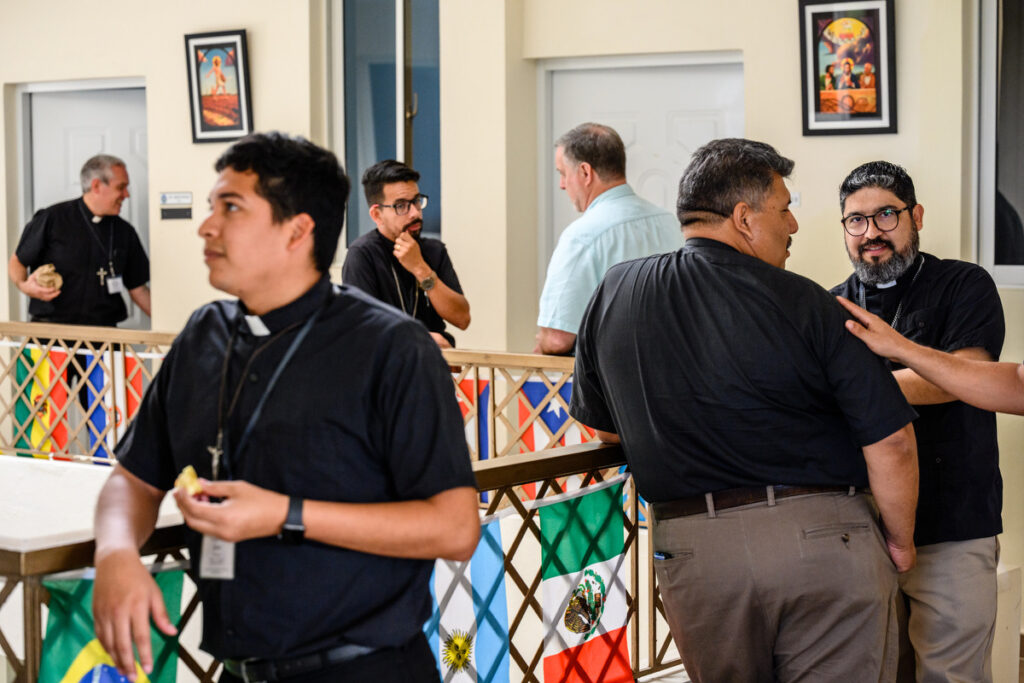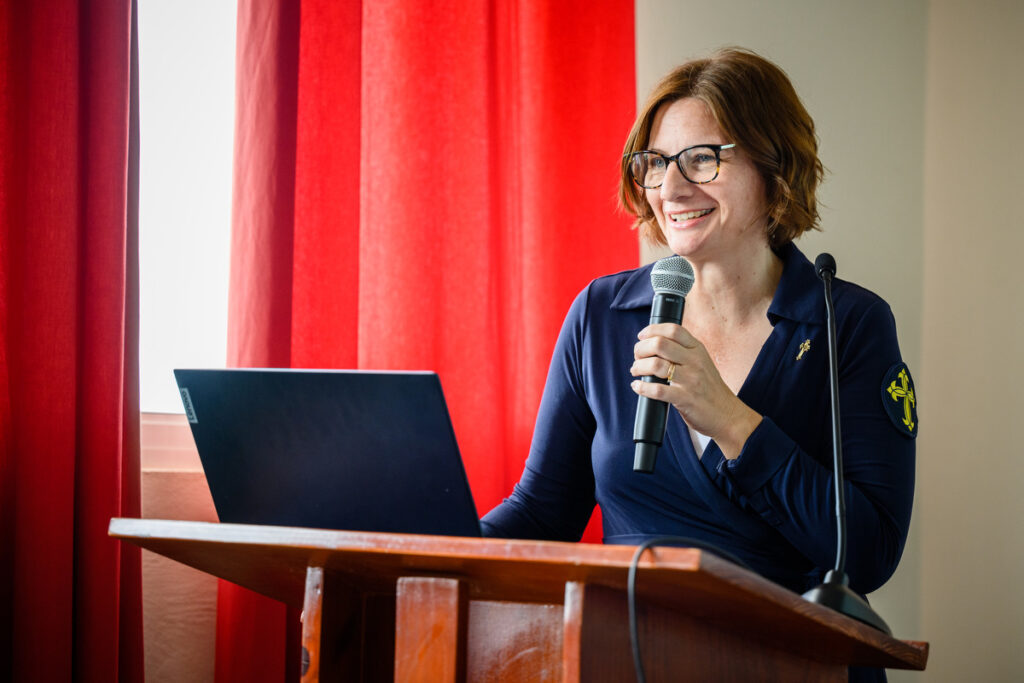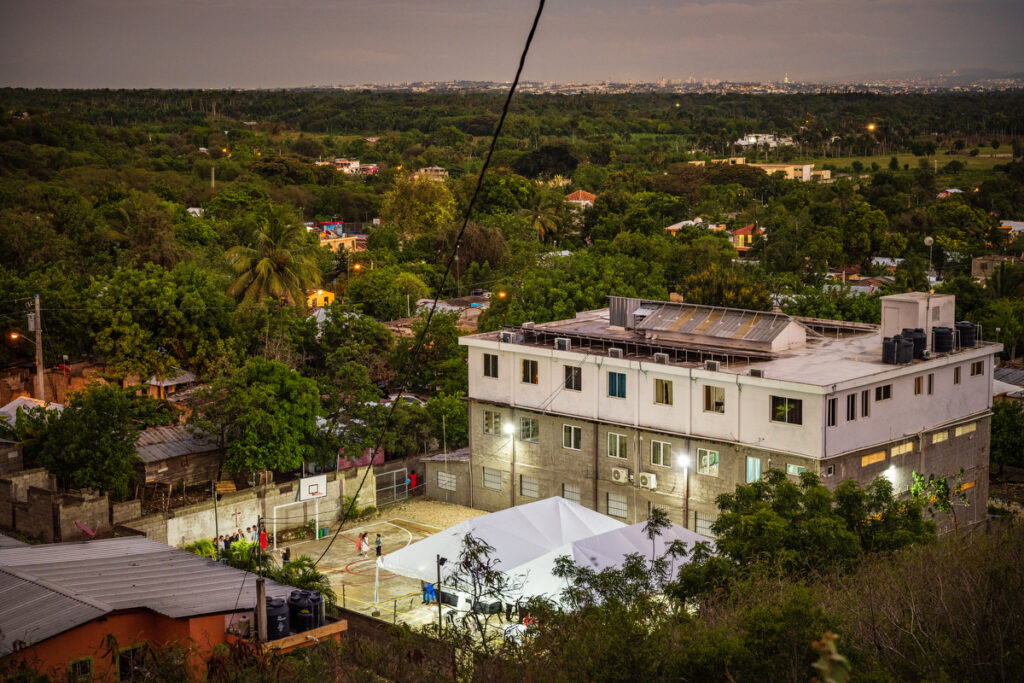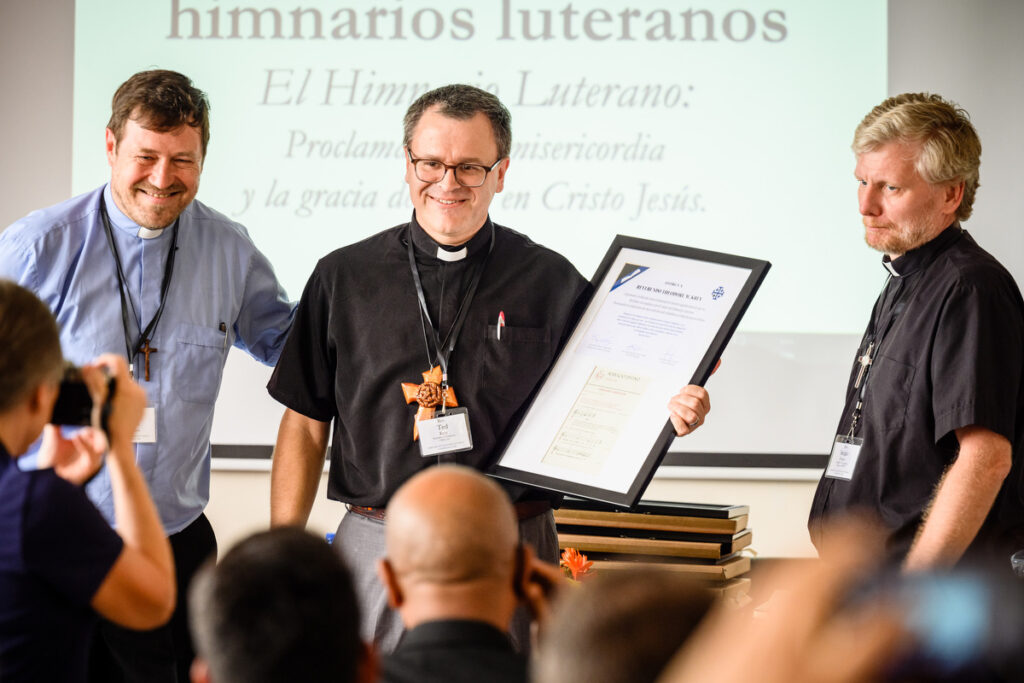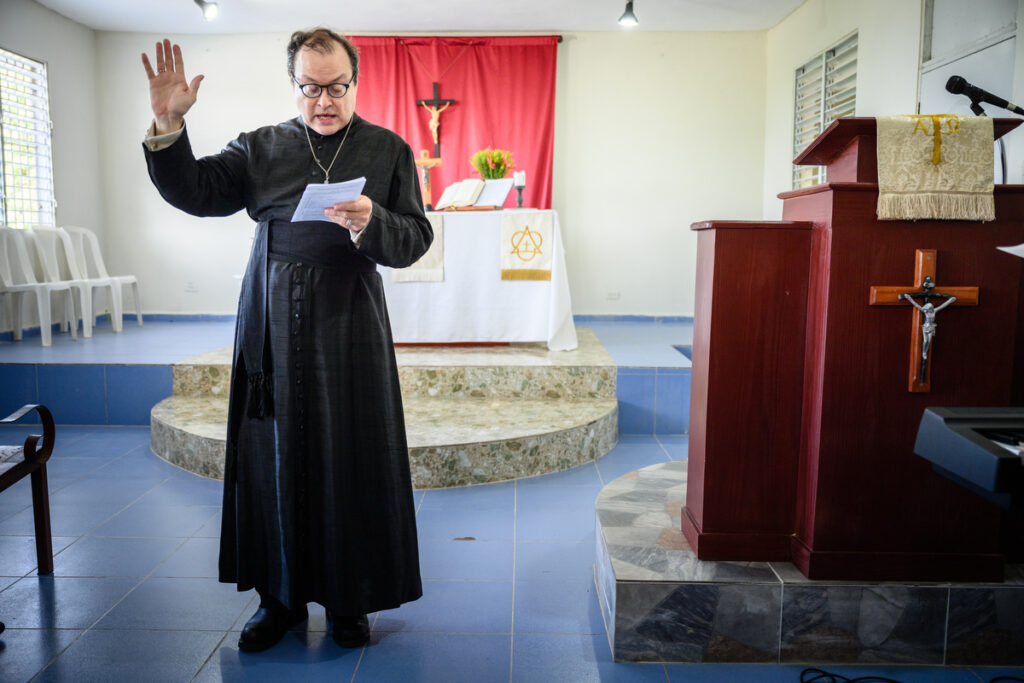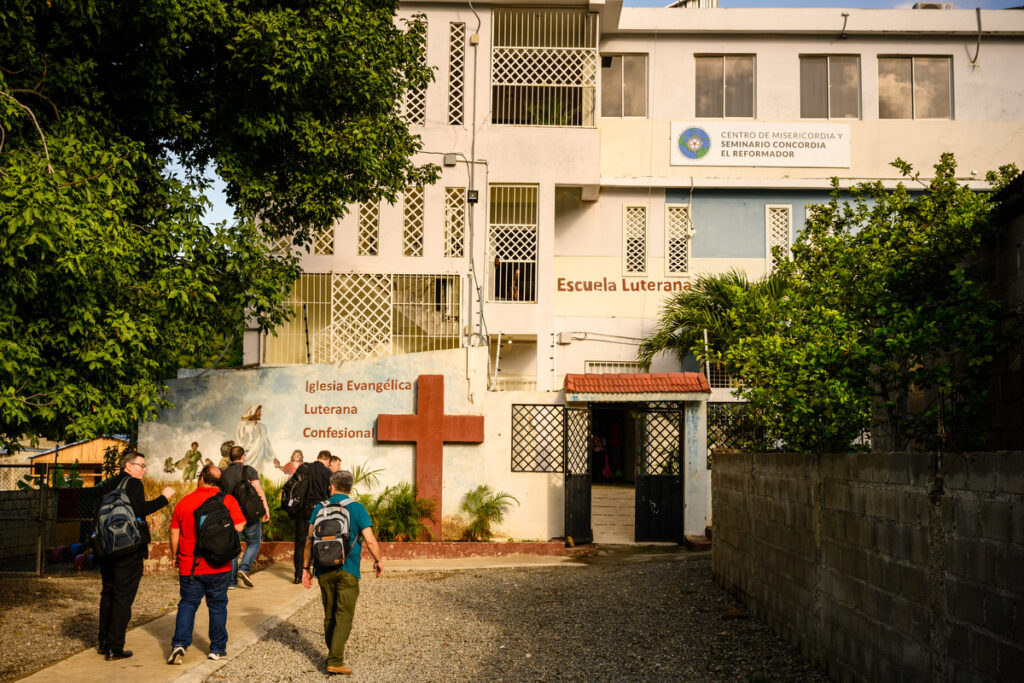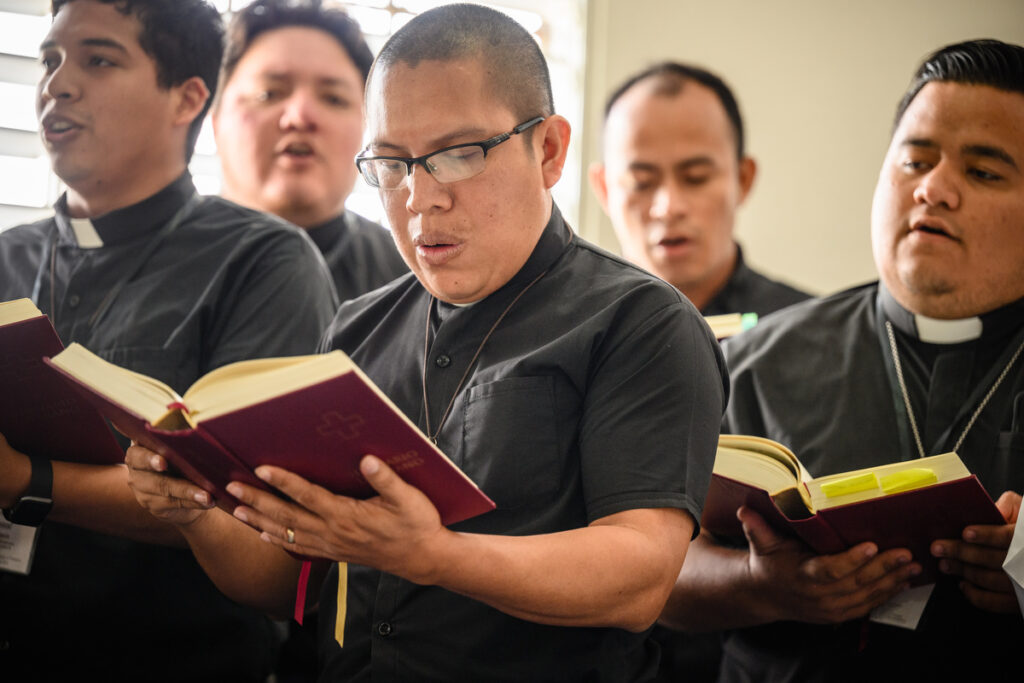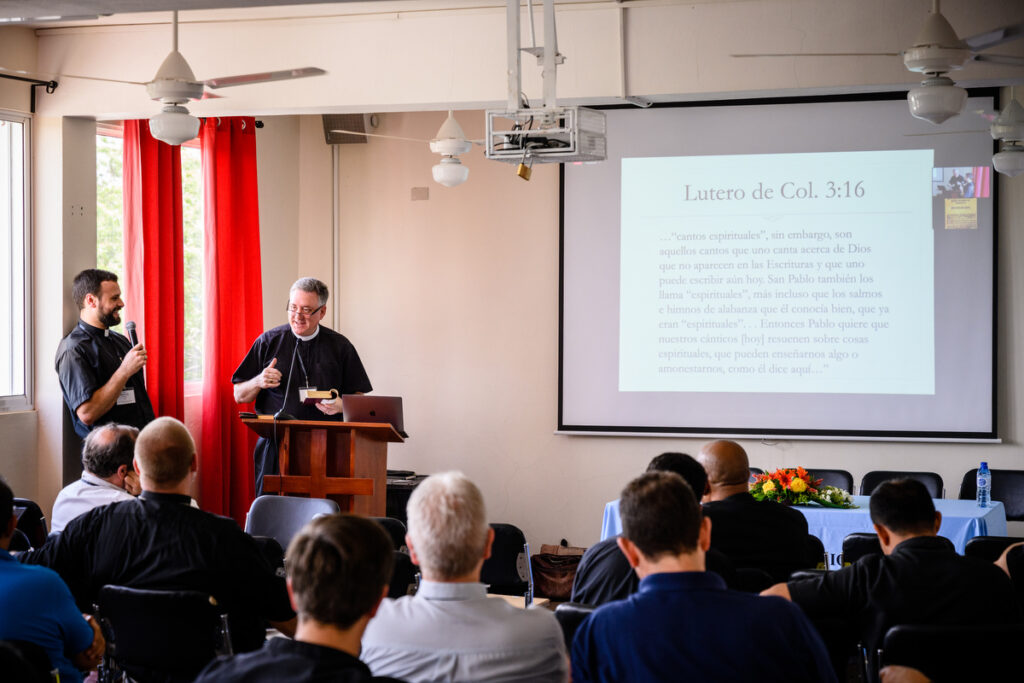Feature
Fostering a Lutheran Identity in Latin America
Church leaders from throughout the region gather in the Dominican Republic to celebrate the graduation of 15 church workers and to learn about a new Spanish-language hymnal.
On May 27, three pastors and 12 deaconesses graduated from Centro de Misericordia y Seminario Concordia el Reformador (Concordia the Reformer Seminary and Mercy Center) in Palmar Arriba, Dominican Republic (DR). The graduates will serve the church throughout Latin America as they head to Peru, Chile, Mexico, Panama, Guatemala, Venezuela and other nations.
“God takes you in many ways. … I never thought I would be a pastor. But God led me here out of my country to learn the truth so that I can return to my home country to tell them the truth,” said the Rev. Jeancarlos Ramírez, who graduated from Concordia after four years of residential education. Ramírez, who will serve the church in his native city of Lima, Peru, especially looks forward to bringing the Gospel to children and families. “Everything you learn in seminary — it’s important to think about how to communicate that to kids, to people who don’t know. … [We] don’t change the truth but learn how to share it with kids so that they can understand.”
Sharing the Love and Mercy of God
Concordia forms pastors to spread the Gospel, plant Lutheran churches and show mercy. It also trains deaconesses to serve alongside pastors to show the mercy of God in Christ to those who are in need and facing difficulties.
Deaconess Danelle Putnam, an LCMS missionary and associate coordinator of the deaconess program at Concordia, noted that most of the graduating deaconesses will not be paid. They see their service to the church and others as their reward. “The three-year program here consists of nine main core courses that train the women and instruct them in the Bible and Lutheran doctrine. We also have fieldwork that the women do to give them practice in caring for people, in reaching out to their neighbor.”
“Being a deaconess is a wonderful area of service for the church. We work in different areas like Christian education and mercy work. We also care for people spiritually,” said Putnam. “The deaconess works alongside the pastor to help him care for the body and soul. She is the one out in the community and in the congregation looking for the needs of people, listening to the people, then taking those needs also back to the pastor so that he can attend to them spiritually.”
The graduates leave Concordia to serve the church throughout South and Central America. When asked what he learned while studying at Concordia, graduate Rev. Rafael Flores, who will serve in Chile, noted, “Without a doubt, the mercy and love of God … the most important thing is now to show mercy toward others.” Flores looks forward to serving in Chile, where the church has few pastors.
Celebrating a New Hymnal
Rain drenched the outside graduation service, and the wind whipped the rented tents, which could not fully protect everyone from the elements. Yet the Word of God, sent from heaven as was the rain, accomplished exactly the purpose for which God sent it forth. The Rev. Dr. Gerson Linden, director of Seminario Concordia in São Leopoldo, Brazil, preached to the graduates and all assembled to trust in and proclaim the one thing this world needs: Jesus Christ and Him crucified.
The graduation service took place at the end of a weeklong symposium hosted by the seminary that included education about and celebration of the release of a new Spanish-language hymnal. This Spanish Lutheran Hymnal is the result of a joint project of the Southern Cone (Chile, Argentina and Paraguay), the Confessional Lutheran Education Foundation, Lutheran Heritage Foundation, and the LCMS Office of International Mission’s Latin America and the Caribbean region. The hymnal is now available in print, with a planned digital edition in production.
“Lutherans invented hymnals,” boldly stated the Rev. Dr. Jon Vieker, dean of chapel at Concordia Seminary, St. Louis, during the symposium. Although a hymnal was assembled in Czech in 1501, “the refinement and widespread printing of hymnals was found first among the Lutherans,” Vieker continued. “More importantly, the widespread use of these hymnals among Lutherans became one of the major vehicles for the spread of the Gospel throughout Germany and much of the rest of Europe. So having said all of that, I will say it again: Lutherans invented hymnals.”
Thus, the celebration of a hymnal is a very Lutheran habit. Leaders from Lutheran churches in Argentina, Bolivia, Brazil, Chile, Guatemala, Mexico, Panama, Uruguay and Venezuela were in attendance for this celebration.
This new hymnal includes lectionaries; the psalms; five liturgical settings of the Divine Service; Matins, Vespers and Compline; other daily offices and services; a setting of private Confession and Absolution; Luther’s Small Catechism; and other resources. The bulk of the hymnal, of course, consists of 670 hymns. Effort was made to include all of the extant hymns attributed to Martin Luther.
Throughout the week, scholars and church leaders presented papers and responded to each other in collegial conversation and celebration. The papers focused on the role of hymns in Christian suffering, the history of hymnals, a look at the Divine Service in the theology of the cross, Luther and Gerhardt as composers, and the daily prayers at the family altar. Each day began with Matins in the chapel using the new hymnal. Each evening ended with a hymn sing hosted by one of the symposium presenters.
Fostering a Common Identity in Christ
“One of our goals for a regional, residential seminary is to gather our students together around our Lutheran theology to foster their common identity as Lutherans,” said LCMS missionary Rev. Joel Fritsche, director of the DR seminary. “Our annual theological symposium seeks to accomplish that at an even broader level by inviting partner church presidents and leaders in theological education to join us for a week. This year we are humbled to play a role in the introduction of the new Spanish Lutheran Hymnal, which we pray will also strengthen our theological unity and identity in song for years to come.”
The week also included the dedication of the library at Concordia; a presentation of the distance learning based FPH program — like the Specific Ministry Pastor (SMP) program in the United States — at Concordia (in coordination with Concordia Theological Seminary, Fort Wayne), which allows men to study for the pastoral office who cannot travel to the DR; and the official dedication of the hymnal. Throughout the week, the attendees enjoyed the blessed fellowship of mutual confession and encouragement in the work of God’s kingdom.
“Luther learned from his first hymn,” observed Vieker, “that hymns can spread the Gospel.” May it be so.
Learn More
- About the Latin America and Caribbean region
- Support seminary education in the region
Pray with Us
Gracious Lord, You give to Your people tongues to sing and mouths to proclaim. Grant to Your church Your Spirit, that all our songs, prayers and proclamations may be filled with Christ and Him crucified. We thank You for the new Spanish hymnal and pray that You would bless its use to the edification of Your holy church. Continue, we pray, to provide workers for Your kingdom through Concordia the Reformer Seminary, that the church would sing, praise, pray and preach Christ until His return. In Jesus’ name. Amen.
Share Jesus with the World
Your generosity today makes possible your Synod’s witness and mercy efforts both at home and abroad.
Are you looking to direct your gifts for work that’s more specific?
Visit the LCMS online ministry and mission catalog to find those opportunities most meaningful to you!
Don’t see what you’re looking for?
Contact LCMS Mission Advancement at 888-930-4438 or mission.advancement@lcms.org to talk about all the options available.
Dr. Kevin Armbrust
Director of Editorial for LCMS Communications.

